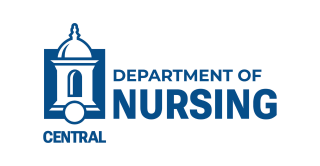
About GIS
Geographic Information Systems (GIS) can be applied to a diverse multitude of industries and occupational fields. Everything from environmental fields to emergency response, technology professions, and utilities, plus many other industries benefit from the regular use of GIS. Professionals in this field analyze and visualize data to answer questions and solve spatial problems. According to the US Bureau of Labor Statistics, employment of geographers is projected to grow 29 percent through year 2022, much faster than the average for all occupations. Increasing use of geographic technologies and data will drive that employment growth. Those with specialized subject matter expertise and experience working with geospatial technologies, such as GIS, should have the best job prospects. Furthermore, job openings will arise from the need to replace workers who retire or leave the occupation.
GIS is an exciting, rapidly changing, and cool technology that merges nicely with many other technologies you may be interested in, such as virtual and augmented reality, web development, and phone apps. GIS is a green technology that is making a difference on our planet and to its people every day for key decisions about wildlife habitat, human health, renewable energy, climate change, water quality and availability, wilderness areas, and much more. GIS jobs are varied and are found within nearly all industries and sectors including, private companies, all stages of government, and education. Salaries in GIS and Geospatial industries range from $50,000 to $80,000 or more depending on geographic region, experience, and occupation within the industry, making it a very lucrative career choice.
Connectivity is now available almost anywhere in the world, as is the ability to determine a location, and to find location information about the people and places that are important to us. Location is impacting everything around us. The power of location is growing as an influence on many industries and markets. Professionals who can leverage that information and help weave it into applications and make sense of the "where" factor will be in high demand.
GIS Certificates at Central
Central offers the Geographic Information System (GIS) Certificate Program to provide the kind of high quality education it has become known for as an avenue to gain hands-on experience and knowledge of this valuable skill set. Students will have ample opportunities to explore GIS and acquire the necessary tools to succeed in the GIS industry. Recent graduates of the program have successful GIS careers in both public and private organizations.
The Central Department of Continuing Education, in cooperation with the Department of Geography, offers a Geographic Information Science (GIS) Certificate Program. The program offers two stand alone certificates - the GIS Essentials Certificate (Level 1) and the GIS Advanced Certificate (Level 2), each comprised of 2 courses offered over 20 weeks, with 8 on campus meetings each, and on-line instruction for the remaining weeks.
For more information or to enroll, please visit the Office of Continuing Education's webpage.
GIS Essentials Certificate (Level 1)
The GIS Essentials Certificate focuses on the essential foundation skills that all GIS practitioners and professionals in the field utilize on a regular basis. The two courses that comprise the level 1 certificate include “Fundamentals” and “Practical Applications”. This certificate program introduces students to the initial tenants of GIS and progresses through learning the software tools and how to accomplish basic tasks. Additionally students are taught how to utilize software tools and apply them with basic GIS principles to solve typical industry problems and answer questions raised to GIS professionals every day. Real world scenarios provide exposure to methodologies and common practices that can be directly tied to workplace projects and everyday GIS challenges. Students will be learning the most recent version of Esri’s ArcGIS platform including ArcGIS Pro. No prior GIS experience is required for this certificate program.
Course 1 GIS Fundamentals includes discussion of basic geographic principles such as direction, coordinate systems, spatial relationships, and geographic thought; introduction to what GIS is and how it works in general; introduction to the ArcGIS environment and ArcMap/ArcCatalog/ArcGIS Pro applications. It also includes discussion regarding cartography and GIS data and data types. Students leave being able to navigate basic software tools including pan, zoom, query, identify and measure and create shapefiles and shapefile data. This course will be offered during the Fall semester.
Course 2 Practical Applications includes discussion of practical applications of GIS in the real world using geoprocessing tools (buffer, clip, join) and an introduction to the geodatabase data structure. Topics include GIS design, implementation and administration. Students leave with basic geoprocessing skills, geocoding, georeferencing, and being able to create a geodatabase and associated data structure. This course will follow immediately after Course 1.
GIS Advanced Certificate (Level 2) - Currently not being offered for 2022 or 2023
The GIS Advanced Certificate focuses on advanced GIS skills that will build upon those taught in Certificate 1, including the creation of web based maps and applications, custom tools, and additional data collection tools. The two courses that comprise Certificate 2 include "Web GIS" and "Advanced GIS Applications". This certificate program will provide students with exposure and instruction on utilizing web-based technology and other related technologies to extend their GIS tools to provide additional functionality. Additionally students will be introduced to opensource computer programming languages and remote sensing technology that is commonly used in the GIS field. Hands-on activities and assignments will offer students a chance to apply the lessons they learn in practical scenarios. Prior GIS experience and fundamental GIS knowledge is prerequisite for this certificate program.
Course 3 GIS Advanced Applications includes discussion of internet-based GIS sources and applications, web application design, and mobile GIS applications. It also includes discussion regarding social implications of GIS applications and web mapping platforms. Students will leave the course having created basic web-based GIS applications and exposure to using internet-based GIS data sources. This course will be offered in during the Spring semester.
Course 4 GIS Advanced Applications includes discussion of advanced technologies and tools that integrate with GIS. Students will be instructed in creating custom tools and applications, and introduced to object oriented programming, GPS, Lidar, remote sensing, and photogrammetry. Students will leave the course having created a custom GIS tool or application. This course will follow immediately after Course 3.



